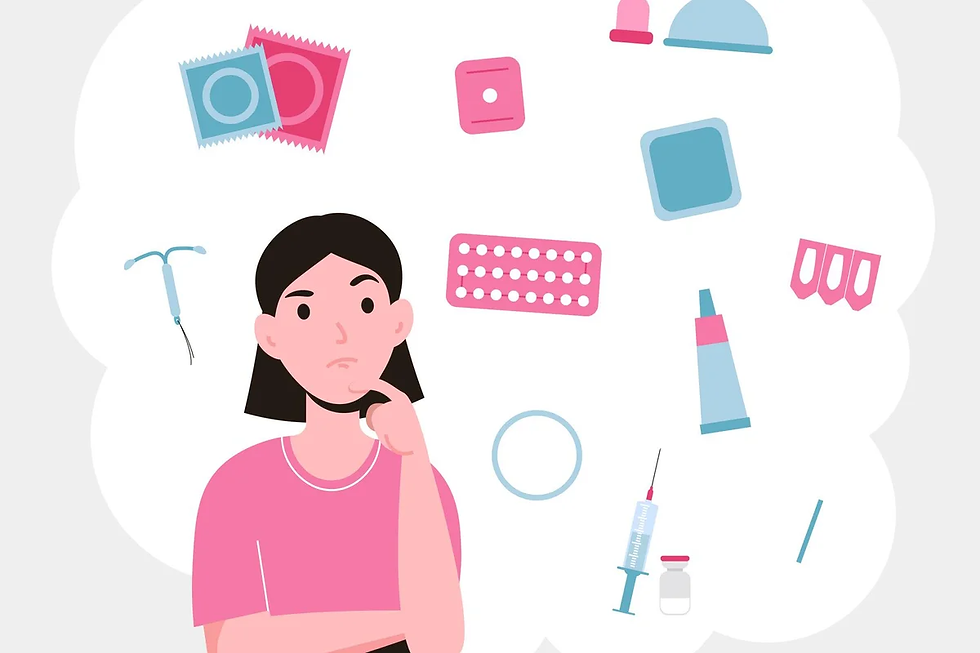Breaking Barriers: Improving women's access to contraception

Women's access to contraception is not just a matter of personal choice; it is a fundamental right that empowers women to take control of their bodies and lives. Contraception provides women with the autonomy to plan their pregnancies, pursue education, and pursue professional careers. However, despite its significance, many women around the world still face numerous barriers when it comes to accessing contraception. In this blog, we will explore the challenges women encounter and the potential solutions that can ensure every woman has the freedom to make informed decisions about her reproductive health.
Barriers to Accessing Contraception
1. Limited Knowledge and Awareness: One of the primary barriers to accessing contraception is the lack of comprehensive sexual education and awareness. In many societies, discussing topics related to sexual health and contraception remains taboo, leaving women uninformed and unsure about their options.
2. Stigma and Social Norms: Cultural and societal norms can significantly impact a woman's ability to seek contraception. Women who wish to access contraceptive methods may face judgment, ostracization, or even violence from their communities and families.
3. Cost and Affordability: The financial burden associated with contraceptive methods can be prohibitive for many women, especially those in low-income communities. Expensive contraceptives, along with additional costs for medical consultations and follow-ups, can dissuade women from seeking family planning services.
4. Limited Availability of Services: In rural and remote areas, access to healthcare facilities and contraceptive services is often scarce. Geographical barriers can be significant hurdles, particularly for women who lack transportation and must travel long distances to access healthcare.
5. Religious and Institutional Obstacles: Some religious institutions and conservative organizations may hinder access to contraception due to ideological beliefs, limiting women's choices and infringing upon their reproductive rights.
Solutions to Break Barriers
1. Comprehensive Sexual Education: Implementing comprehensive sexual education in schools and communities is essential to dispel myths, foster awareness, and promote responsible sexual behavior. By empowering women with knowledge about contraceptive options, their benefits, and usage, they can make informed choices about their reproductive health.
2. Advocacy and Awareness Campaigns: Governments, non-governmental organizations, and activists must initiate awareness campaigns to address the stigma surrounding contraception. Public advocacy can help change social attitudes and promote acceptance and support for women's reproductive rights.
3. Subsidized Contraceptive Services: To improve affordability, governments should subsidize contraceptive methods and family planning services. By reducing costs, women from all economic backgrounds can access contraception and make decisions according to their personal choices and needs.
4. Telemedicine and Mobile Clinics: Leveraging technology to provide telemedicine services and setting up mobile clinics can overcome geographical barriers. This approach can bring reproductive healthcare to remote areas, allowing women to access contraceptives without having to travel long distances.
5. Legal Protections and Policy Reforms: Strong legal protections and policy reforms are crucial in safeguarding women's reproductive rights. Governments should enact and enforce laws that ensure equal access to contraceptive services and protect women from discrimination and coercion.
Ensuring women's access to contraception is not only a matter of reproductive health but also a critical step toward gender equality and women's empowerment. By breaking down the barriers that hinder women's access to contraceptive services, we can help them take control of their lives, education, and careers. Comprehensive sexual education, increased awareness, affordable services, and supportive policies are vital components of a comprehensive strategy to empower women and guarantee their reproductive rights. Only through collective efforts and a commitment to gender equality can we create a world where every woman has the freedom to make informed choices about her body and future.

Comentários